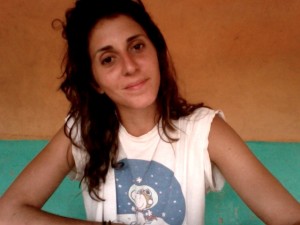 Sophia Collas is the newest addition to the Akaa Project team. As our Program Associate, she is focusing on education initiatives and teacher training. She comes from Pencils of Promise, an international NGO dedicated to quality education, and has lived and worked in Ghana for almost one year. She is passionate about improving learning outcomes, building teacher capacity, and instilling excitement for learning at the Asiafo Amanfro Community School!
Sophia Collas is the newest addition to the Akaa Project team. As our Program Associate, she is focusing on education initiatives and teacher training. She comes from Pencils of Promise, an international NGO dedicated to quality education, and has lived and worked in Ghana for almost one year. She is passionate about improving learning outcomes, building teacher capacity, and instilling excitement for learning at the Asiafo Amanfro Community School!
It’s been more than two months since I started living and working with the Asiafo Amanfro community, but it feels like I have been part of this wonderful family for my whole life. I flew out of New York City at the end of January when snow storms and freezing temperatures were about to take over for what my family and friends have described as an endless winter. I, on the other hand, landed in Kotoka Airport in sweltering heat and was greeted by Lauren. Since that day we haven’t stopped working, talking, and planning – and certainly have not looked back to winter weather. Having lived and worked in Ghana for six months prior to joining the Akaa Project, I felt prepared to hit the ground running. In my first week with the Asiafo Amanfro Community School, Lauren and I researched and implemented a workshop on classroom management and positive discipline. This workshop was designed as an immediate response to the concerns teachers were raising about the lack of discipline and poor behavior they were seeing in their classroom. Throughout Ghana, a common form of discipline is “caning” – this means hitting students with a cane to enforce discipline. Caning is used to punish a student for lateness, talking out of turn, answering a question incorrectly, hitting another student, being out of uniform…the list goes on. It is a cruel, ineffective, and psychologically damaging form of punishment and is banned by the Ghana Education Service. Still, it is widely used and is the form of discipline that is best known to teachers in this country. The Akaa Project strictly enforces and upholds a no-caning policy. To support teachers and make them more effective at managing discipline issues in a way that is unfamiliar to both them and our students, we wanted to hold a workshop to equip them with tools and training that would encourage positive behavior and address student needs. The workshop and the teacher’s participation addressed a very important aspect of our school and our community. Effective classroom management is major component of effective teaching, and challenges will always arise (especially for our feisty Nursery and Kindergarten students) – and this is not unique to our school. Positive discipline is an approach we introduced and continue to encourage through mentoring and counseling of students and their parents when behavioral issues or consistent lateness need to be addressed. We revisit these issues on a regular basis, but always refer to our learnings and trainings from this very first week in February!
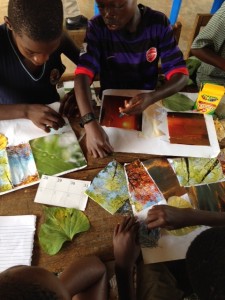
Engaging students in stimulating group work is one way to improve relationships between classmates and teachers. Participating in fun classroom activities can also be used within a rewards / consequence system to maintain discipline.
In March, we implemented the Early Grade Reading Assessment to test reading skills of all of our students in grades 1-5. The Early Grade Reading Assessment (EGRA) is designed by USAID and is implemented to evaluate competency in the five core reading skills. EGRA testing has been conducted on a national scale in Ghana, and all over the developing and developed world. We are able to compare our results to those of other primary schools (public and private) all over the globe. We trained three enumerators – our very own Project Manager, Jonathan, and two students currently at the Somanya Teacher Training School. In the course of one day our enumerators administered the 15 minute one-on-one oral exam to almost 100 of our students! The results from the assessment have given us a clearer understanding of what our student’s strengths and weaknesses are when it comes to English literacy. The results will help us to shape learning goals for every class, and also to better inform us on where we should be directing resources and teacher support. From initial scoring it is striking that the majority of our students are excelling in listening comprehension – meaning that they can understand English proficiently – even in the youngest grades.
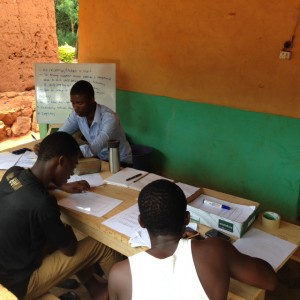
Our enumerators spent a whole weekend training on how to implement and score the EGRA test. They also learned a lot about the five key skills of reading and why it is important to evaluate them in young children.
To improve quality of teaching and student comprehension in the classroom, we also led a workshop and follow-up trainings to focus on child-centered learning. We invited our friend and EGRA enumerator, Sunday, from the Teacher Training School in Somanya to give a presentation to our teachers on the benefits of child-centered learning. He provided a host of practical teaching activities and methods to implement in the classroom. These include taking students on a “field trip” to explore and learn about their surroundings, and “role playing” – for example to act out a story read in class, or to re-enact concepts learned from various subjects. Following this session with Sunday, our Headteacher Mr. Oko took his class on a trip around the school compound to test their English vocabulary. He asked students to give the words for “tree” “building” “grass” “table”. This type of activity gets kids out of their chairs, out of their classrooms, and allows them to see the practical application of what they are learning in a formal setting in the real world. To further support teachers in learning and improving teaching strategies, I have been meeting with the teachers to watch various training videos. The first set of videos are designed by Sesame Street and lead teachers in hilarious instruction on various aspects of teaching and of using low-cost resources in the classroom. Two Sesame Street characters host the videos – and to our teachers who have never seen or heard of Sesame Street, these characters are the best part of the video! The videos are filmed in Ghana, so the classroom settings are familiar, as are the accents, available resources, and possibility for implementation. Using what they have learned, our teachers have been rearranging seating in their classrooms so that students sit with their desks in circles or facing one another to encourage group work. Additionally, for students who don’t have writing material, teachers ask them to practice writing and spelling in the sand in the compound – these are very simple ideas that were introduced through the videos and make a difference to the school day. Our teachers are learning new methods, new activities, and new ways of thinking about learning. Creating teaching learning materials (TLMs) from more ideas taken from these videos will feature in a big way third term.
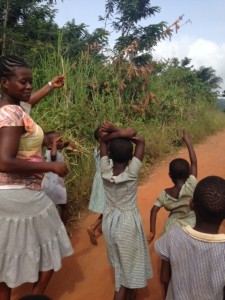
Vero, our Kindergarten teacher, uses a local resource – grass – to test her students on identifying letters of the alphabet.
The other set of videos we are watching are called Momosign. Momosign is a methodology developed by Pencils of Promise’s teacher training specialist, Martin Momoda. The method uses body movements and gestures through sign language to spark student’s interest, engagement, and retention of information when learning the English language. Our teachers have been learning and implementing the method since January when they attended Pencils of Promise’s training workshop, and are continuing to master this teaching strategy in creative ways. Wisdom, our second grade teacher, uses signs for “sit” “stand” and “dance” to focus his students when they are becoming too active in class. Other teachers break up lessons by asking their students to use finger spelling to demonstrate that they know key words, and others use signs for groups of words such as fruits, animals, and articles of clothing, to build lessons around specific vocabulary lessons. The response is always a lot of laughs from teachers and students.
April has already been an exciting month for the teachers and for the Akaa Project. On April 11th all seven teachers attended a high level training workshop organized by The Educator’s Network at the Lincoln Community School in Accra (a top American school in the country) and Lauren gave an inspiring talk at TEDxAccra at the National Theatre. Four of our top students – who excel academically and have excellent attendance records – were present at the National Theatre as well. This was a truly exciting and special day full of new opportunity, experience, and growth for everyone present – including Lauren and myself.
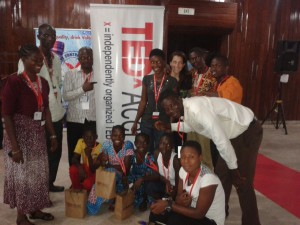
Our teachers, students, and founder all smiles at the National Theater in Accra
The second term of this academic year is ending on a high note, especially as we look back at the accomplishments, improvements, and new ways forward for the school. Term three is already looking to be productive and full of more trainings, interactive student learning, increased community involvement, and three stellar volunteers. Stay tuned!

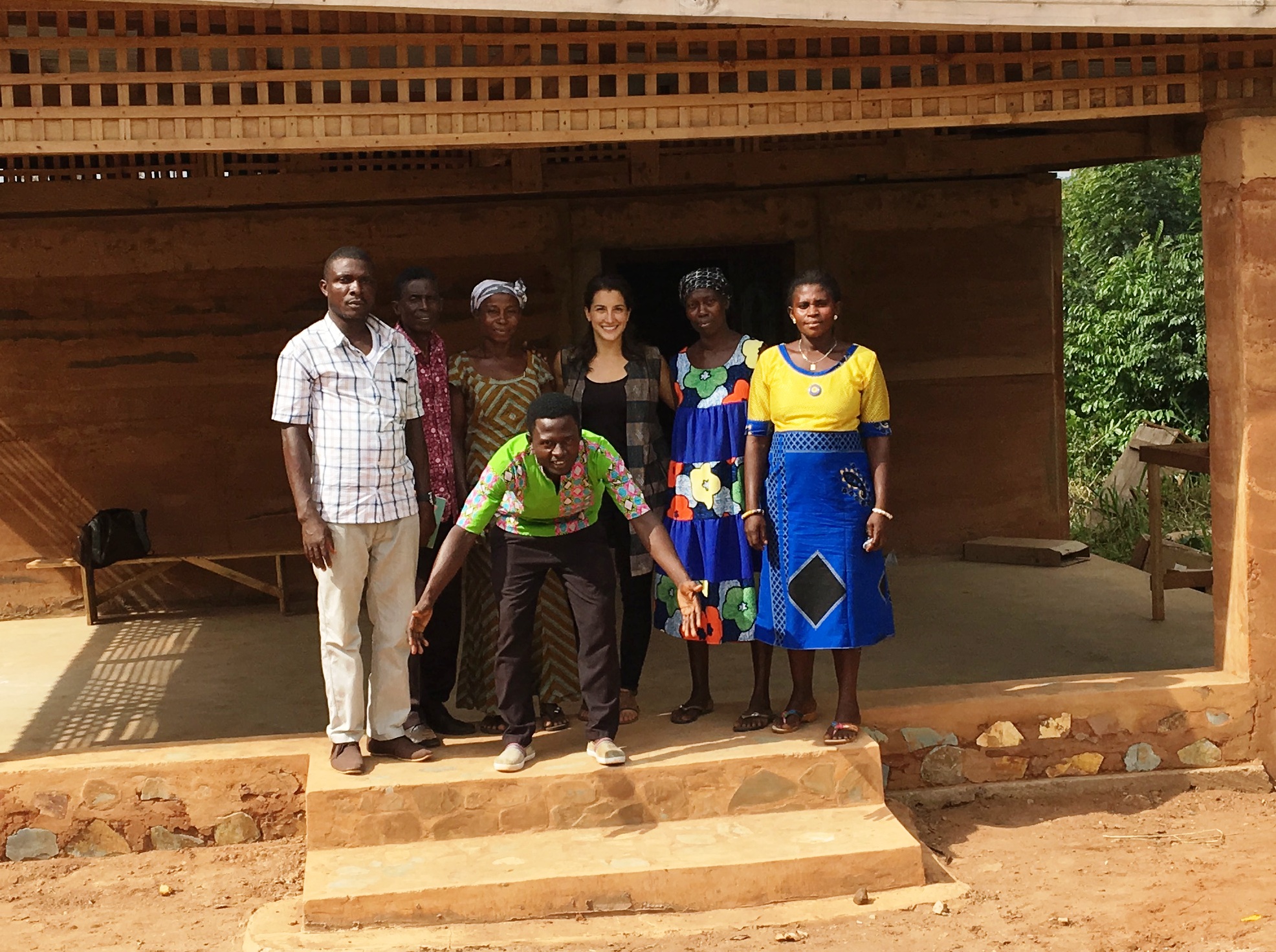


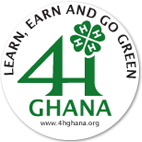
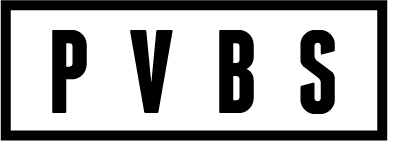
Off